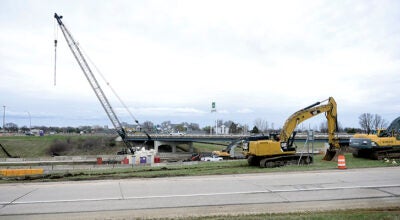Sewer project up in the air
Published 2:57 pm Saturday, July 3, 2010
With City Council set to meet Tuesday, much remains up in the air when it comes to the controversial Lansing-area sewer project.
Technically, the meeting is being held for council to vote on whether to approve more than $3 million in citizen assessments — an amount that would cover the whole project and equal roughly $16,000 for each of the 209 residential units in the area.
However, there is a possibility that council could delay this vote in order to explore more options and alternatives. City administrator Jim Hurm said there aren’t any new proposals per se, but he did note that the city engineer would likely gauge council’s willingness to hold off for now in order to look at potential plan revisions. Discussed changes could include reducing the project’s scope or altering the proposed assessment guidelines.
If the hearing is continued, it would be the second time in as many weeks that council bumped the issue back.
Keeping the project on hold has been a number of complaints filed with the city. To date, residents representing more than 60 residential units have submitted complaints, and more could come in up until Tuesday evening’s hearing.
The complaints present a tricky situation for the city — beyond angering the complainants if it goes ahead with the project, the city could also face lawsuits in district court from these citizens. At worst, the city estimated, this would mean up to $200,000 in legal fees and up to $900,000 of project costs that could be deemed as unfairly assessed by a judge — costs that would then come back to the city.
These complaints have come from all across the Lansing area. Among other concerns, citizens have said they simply can’t afford a $16,000 bill, while others have said they do in fact have compliant septic systems and paying for a sewer would be unfair. Others still have complained about having their properties divided into multiple residential units, which raised their overall assessments.
During a council meeting on June 21, a number of those complaints were aired in public, as a large number of citizens packed the council chambers and made their points.
“No one here is an idiot,” citizen Bob Allen said to the council, noting that he felt the proposed assessments were unfair. “We all know what money is.”
However, there is a substantial amount of citizen support for the project, even if this group is less vocal than those against the sewer. It was, after all, a petition from a Lansing citizen group that recommended annexation by the city so that a sewer could get built. And at around the same time, a survey was conducted in the area. Of 167 ballots that were actually returned, 69 percent indicated support for a sewer, and of those, nearly all of them favored a city-backed project over a township-backed project.
Lansing-area resident Al Layman, who has been a proponent of the city’s project and served on an advisory task force that pushed it forward, said he wants to see the city build the sewer.
“We studied both proposals,” Layman said. “We decided the city offered a better option.”
The need for a sewer in the area is largely due to pollution in the Cedar River. The river is currently ranked as one of the five-most endangered rivers in the country, and a number of Lansing-area homes discharge waste directly into it.
Council members have said this problem clearly needs to be addressed, although figuring out exactly how to do so — and who is responsible — has been the challenge. It is clear that the state is getting impatient, as the Minnesota Pollution Control Agency is already threatening at least four residents with $500 monthly fines starting in January if a solution isn’t found.
If the city does not go ahead with the project, Mower County would become the responsible authority, as the county has a specific sewer ordinance, while the city does not. The county could potentially explore a citizen-funded project that is similar to the city’s proposal.
Some citizens have also clamored that it should be up to individuals to resolve their problems. While a number of homes in the area do have compliant septic systems, building a new one could be just as costly for a citizen as paying the $16,000 assessment. In addition, the city has argued that septic systems don’t have a very long life-span, meaning similar pollution problems could pop up again.
Councilman Brian McAlister said he understands citizens’ concerns with high assessment costs, but he said something does need to be done soon.
“There doesn’t seem to be a clean solution here,” he said.
Mayor Tom Stiehm agreed with that sentiment, but he urged the council to go forward with the project despite the opposition.
“We’re not here to do what’s easy,” the mayor said. “We’re here to do what’s best. And I think (this project) is best.”





